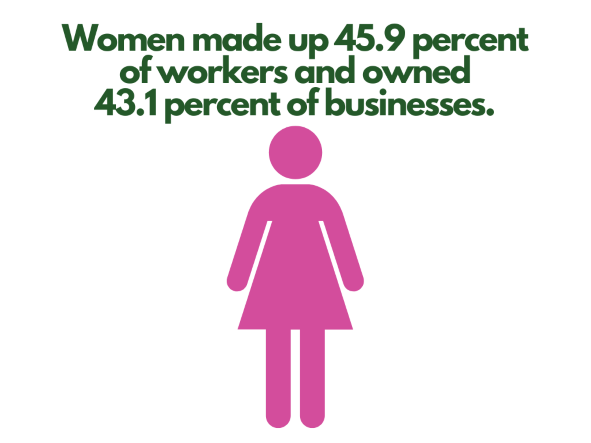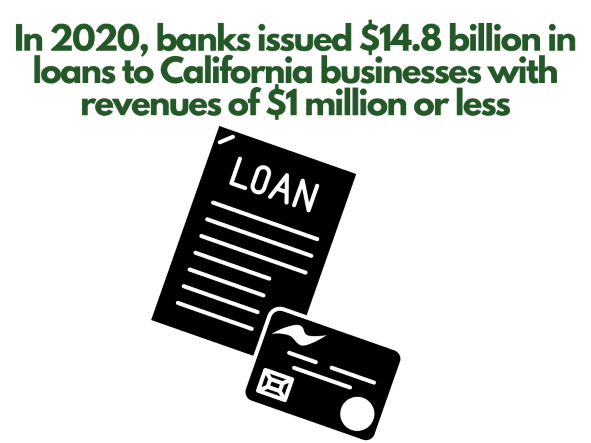How To Start An Llc In California
- Why Start an LLC in California?
- Disadvantages of an LLC in California
- The Cost of Starting an LLC in California
- How to Start an LLC in California
- Step 1 – Create a Brand Name
- Step 2 – Use a Registered Agent
- Step 3 – File Articles of Organization
- Step 4 – File Statement of Information
- Step 5 – Create an Operating Agreement
- Step 6 – Get an Employer Identification Number (EIN)
- Taxes in California for LLC Companies
- Final Word: How to Start an LLC In California
California is one of the top locations people want to work and live in. Not everyone can get a job there, so many people are looking at creating a job for themselves and starting a business. And it makes sense. After all, working for yourself allows you a range of possibilities and opportunities and there are certainly lots of those in California. So in this article, we teach you how to start an LLC in California.
Why Start an LLC in California?
There are numerous reasons why you would want to start an LLC business in California. One reason is that forming an LLC allows you to protect your brand from other people using the name. This can be a challenging problem. If someone else was to use your name, they might steal customers, or at least confuse them. If they started to get a bad reputation, that might be passed on to you.
Another reason is that you can protect your personal assets from debts incurred from trading. If your creditors decide to come after their money earlier or you fail to pay, without the protection of the LLC, they can take your possessions or home. In addition, if an entity takes you to court and wins, the court may seize any possession you own, unless you register your business as an LLC.
You are also likely to benefit from tax regulations that are considered friendly under the LLC business structure.
Finally, becoming an LLC can make fundraising and getting better credit terms easier. LLCs are seen as more favorable than other business models like a sole proprietorship.
California is a lucrative location to start a business because the nominal GDP per capita is much higher than in other countries. It is nearly 33% higher than the average across the US and more than 50% higher than in Arizona. Here is a table to demonstrate how California compares to nearby states.
| State | LLC Filing Fee | LLC Annual/Biennial Fee | Corporate Tax Rate | Nominal GDP per capita |
|---|---|---|---|---|
| California | $70 | $800 (every year) + $20 (every 2 years) | 8.84% | $85,546 |
| Nevada | $425 | $350 (every year) | 0%* | $61,375 |
| Oregon | $100 | $100 (every year) | 6.6-7.6% | $62,867 |
| Arizona | $50 | $0 (no fee and no information report) | 4.90% | $56,511 |
| US Average | $130.38 | $89.34 (every year) | 5.60% | $64,773.08 |
Disadvantages of an LLC in California
One of the major challenges of starting a business in California is that competition in many sectors is tough, very tough. Excess competition for the current demand is one of the main reasons why small businesses fail, with one in five failing to last 12 months. And more than half are gone by year five.
Another barrier to entry is the cost of starting an LLC in California. Compared to other states, the taxes and the costs to register can be much higher. For example, the annual fee for an LLC is $800 in California. The average across the USA is $89.34 with some having no fee at all. This additional cost can hurt some smaller businesses or those that want to set up a business as a side hustle.
Therefore, most brands that are set up in California, tend to be significant businesses or avoid using the LLC business model.

The Cost of Starting an LLC in California
As mentioned, the costs for an LLC in California are more expensive than they can be in other states. But the filing isn’t much higher. For example, filing the Articles of Organization will only cost you $70 and the fee for filing a statement of information is only $20.
However, when combined with the tax costs, you should expect costs to start at around $1110. This can be two or three times higher than it is in other states.
How to Start an LLC in California
Here are the instructions on how to start an LLC in California. Follow these instructions carefully to ensure that you have the best start for your brand.
Step 1 – Create a Brand Name

The first thing that you need to do is to create a name for your LLC brand. The LLC brand name has to follow certain criteria, otherwise, when you try to reserve the business name, the California Secretary of State will reject the name, but you may be fined for attempting to register the name.
The criteria for the name include:
- Must be unique, not being included in the California Secretary of State records.
- Your business name must include 'Limited Liability Company' or an abbreviation.
- The name should not confuse or seem to be connected to a government agency.
- You can include certain words such as a bank, insurance company, trustee, or corporation unless it is highly relevant to your brand and you have permission to do so.
You can conduct a California business name search on the state’s name database. And you can reserve any business name that you would like, by completing the Name Reservation Request form. The reservation will be issued for 60 days. After this time you will need to reserve the name again.
There is a fee to reserve the name. This is $10 for sixty days.
Step 2 – Use a Registered Agent
Every LLC, regardless of state, must have a registered agent, known in California as an Agent of Service Process. This individual or entity will receive legal papers, tax notices, and business renewal notices for your LLC.
A registered agent must be a person or entity with an address in the state (no PO box), be available during business hours, and be of legal age.
You can hire an agent, such as those at ZenBusiness and Bizee. The costs for this can differ but they can also act as an agent in many different states if you need it.
Step 3 – File Articles of Organization

Now you need to create and file the Articles of Organization. You can do this online, by mail, or in person. There is a $70 fee for submitting these documents to the state, and there is a $15 surcharge for doing so in person.
The articles of organization are simple and include the main information that you would expect to find on a document, such as a name, address, registered agent details, management system, company’s purpose, and signature.
Once you’ve filed the document, the Secretary of State will review the document. When approved, the LLC you’ve wanted to create is formed. You will receive a certificate that costs an additional $5.
Step 4 – File Statement of Information
You will need to submit an Initial Statement of Information (Form LLC-12). You need to do this within 90 days of the LLC formation. You can do this online or in person.
The document should include the following information for the document.
- LLC’s name
- Secretary of State file number
- Registered agent’s name and street address
- The mailing address of the LLC
- Name and business address of any elected manager or CEO of manager-managed LLC
Name and business or residence address of all the members of member-managed LLC
Principal business activity.
Step 5 – Create an Operating Agreement

The operating agreement is an internal document to demonstrate how the business will be run. You can find free and premium options for this document online. It takes just a few minutes to create. Sometimes creditors might want to see the Operating Agreement, especially if there is more than one person with a vested interest in the company.
Step 6 – Get an Employer Identification Number (EIN)
You will also need to get an Employer Identification Number. This number is required to identify your company to the Internal Revenue Service (IRS). Once you acquire the number, you’re allowed to hire an employee and you can also open a bank account.
You can register an EIN online. Though there are also mail options for this process.
Taxes in California for LLC Companies

An LLC has to pay annual franchise and sale taxes. The minimum annual franchise tax in the state is $800, but increases for revenues exceeding $250,000.
If you’re selling products, you’re expected to pay a sales tax. The rate for the sales tax in the state is 7.25%, but there could be a variance depending on the county, niche, or other aspects. When in doubt, it is best to speak to a business lawyer, tax specialist, or accountant. Though there is an additional cost for this advice.
For Federal taxes, you have to pay income taxes, self-employment taxes, and employment taxes. However, there are ways to also pay corporation tax when you count your LLC as a corporation.
If you want to know what is the best option, speak to an accountant.
Taxes are one of the reasons why some people are hesitant about starting a business in the state. However, the location has a booming economy that seems to ride out economic uncertainty. At the same time, the population in the state continues to grow and is willing to spend money.
Therefore, taxes, while high, should not be the only reason why you don’t start a business in the state.
Final Word: How to Start an LLC In California
Above are the steps for you to know how to start an LLC in California. The process is rather simple, and it isn’t this part that often discourages business owners from setting up a business in the state. If you want to get involved in business in California, an LLC is a great option, because it offers lots of advantages over other business models.














